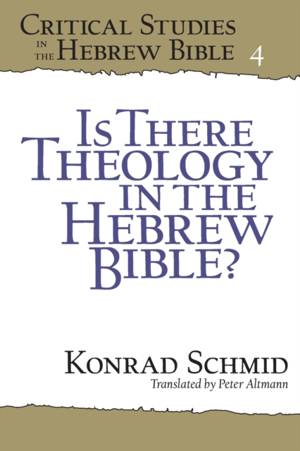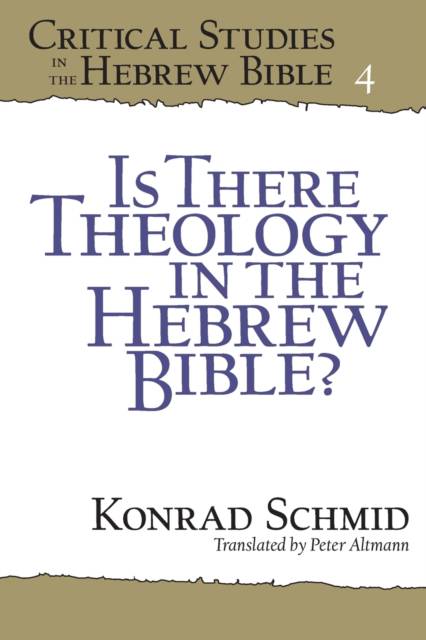
- Retrait gratuit dans votre magasin Club
- 7.000.000 titres dans notre catalogue
- Payer en toute sécurité
- Toujours un magasin près de chez vous
- Retrait gratuit dans votre magasin Club
- 7.000.0000 titres dans notre catalogue
- Payer en toute sécurité
- Toujours un magasin près de chez vous
Description
The Hebrew Bible has long been the subject of theological inquiries and debates in Judaism and Christianity. But is there something like theology already in the Hebrew Bible itself? Is it possible to describe the literary growth of the Hebrew Bible by means of an ongoing theological debate? Answers to these questions depend on how one conceives of the category "theology." In this book, Konrad Schmid reconstructs the development of this category, then describes and discusses biblical texts in the Hebrew Bible that are relevant to the question Is There Theology in the Hebrew Bible?
The book consists of two main sections. In the first, Schmid traces the notion of "theology" from its earliest use, in Greek philosophy, through the medieval period and to today. He pays close attention to "biblical theology," particularly the different understandings of this idea as something emanating from the Hebrew Bible itself versus something that readers impose onto the biblical text. He also tracks the influence of the discipline of comparative religion on biblical theology, especially with regard to the growing division between biblical and systematic theology. In the second part, Schmid focuses specifically on "implicit" biblical theology, that is, theological reflection apparent within the Hebrew Bible itself. He provides several examples, such as the theologization of the law that resulted from inner-biblical exegesis and Jeremiah's universal theology of history.
Is There Theology in the Hebrew Bible? will serve as an important reference to all those interested in the question posed by the title. Schmid provides a nuanced answer to this question that both takes into account the convoluted history of biblical theology and lays out new ways of approaching the subject.
Spécifications
Parties prenantes
- Auteur(s) :
- Traducteur(s):
- Editeur:
Contenu
- Nombre de pages :
- 168
- Langue:
- Anglais
- Collection :
- Tome:
- n° 4
Caractéristiques
- EAN:
- 9781575063515
- Date de parution :
- 23-01-15
- Format:
- Livre broché
- Format numérique:
- Trade paperback (VS)
- Dimensions :
- 152 mm x 229 mm
- Poids :
- 226 g

Les avis
Nous publions uniquement les avis qui respectent les conditions requises. Consultez nos conditions pour les avis.






